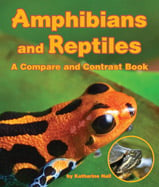Alignment to Standards for KY

| Grade | Number | Standard |
|---|---|---|
| 4 | SC-04-3.4.1a | compare the different structures and functions of plants and animals that contribute to the growth, survival and reproduction of the organisms; |
| 4 | SC-04-3.4.1b | make inferences about the relationship between structure and function in organisms. Each plant or animal has structures that serve different functions in growth, survival and reproduction. For example, humans have distinct body structures for walking |
| 4 | SC-04-4.7.1a | patterns of evidence related to the survival and reproductive success of organisms in particular environments. |
| 4 | SC-4-UD-S-2 | structures and related functions of a variety of plants and animals in order to establish classification schemes |
| 4 | SC-4-UD-S-5 | questions about the diversity of living things using information from a variety of print and non-print sources |
| 4 | SC-4-UD-U-2 | characteristics of living things can be used to sort them into various groups: the characteristics chosen to establish the grouping depend on the reason for the grouping. |
| 4 | SC-4-UD-U-3 | organisms have different structures that are used for different functions. Observations of the structures of a certain organism can be used to predict how that organism functions or where it might live. |
| 5 | SC-05-3.5.1 | cause and effect relationships between enhanced survival/reproductive success and particular biological adaptations (e.g., changes in structures, behaviors, and/or physiology) to generalize about the diversity of species. |
| 5 | SC-05-3.5.2 | all organisms must be able to obtain and use resources, grow, reproduce, and maintain stable internal conditions while living in a constantly changing external environment. |
| 5 | SC-5-BC-S-2 | adaptations of various organisms to their environments through observations as well as print and non-print based resources |
| 5 | SC-5-BC-U-3 | successful organisms must be able to maintain the basic functions of life in response to normal environmental fluctuations (e.g. day/night, seasonal temperature changes, precipitation). |
| 5 | SC-5-I-U-2 | populations interact with each other in an ecosystem form a specific community, but there may be multiple communities within the same ecosystem. |
| 5 | SC-5-UD-U-1 | animals and plants have a great variety of body plans and internal structures that contribute to their being able to meet their needs. |
| Primary | SC-EP-3.4.3 | Students will describe the basic structures and related functions of plants and animals that contribute to growth, reproduction and survival. |
| Primary | SC-EP-3.4.3a | Each plant or animal has observable structures that serve different functions in growth, survival and reproduction. For example, humans have distinct body structures for walking, holding, seeing and talking. These observable structures should be explored |
| Primary | SC-P-UD-S-3 | Students will investigate adaptations that enable animals and plants to grow, reproduce and survive (e.g., movements, body coverings, method of reproduction) |
| Primary | SC-P-UD-S-4 | Students will analyze structures of plants and animals to make inferences about the types of environments for which they are suited |
| Primary | SC-P-UD-U-2 | plants and animals have features that help them live in different environments. |
| Primary | SC-P-UD-U-3 | some animals are alike in the way they look and in the things they do, and others are very different from one another. |